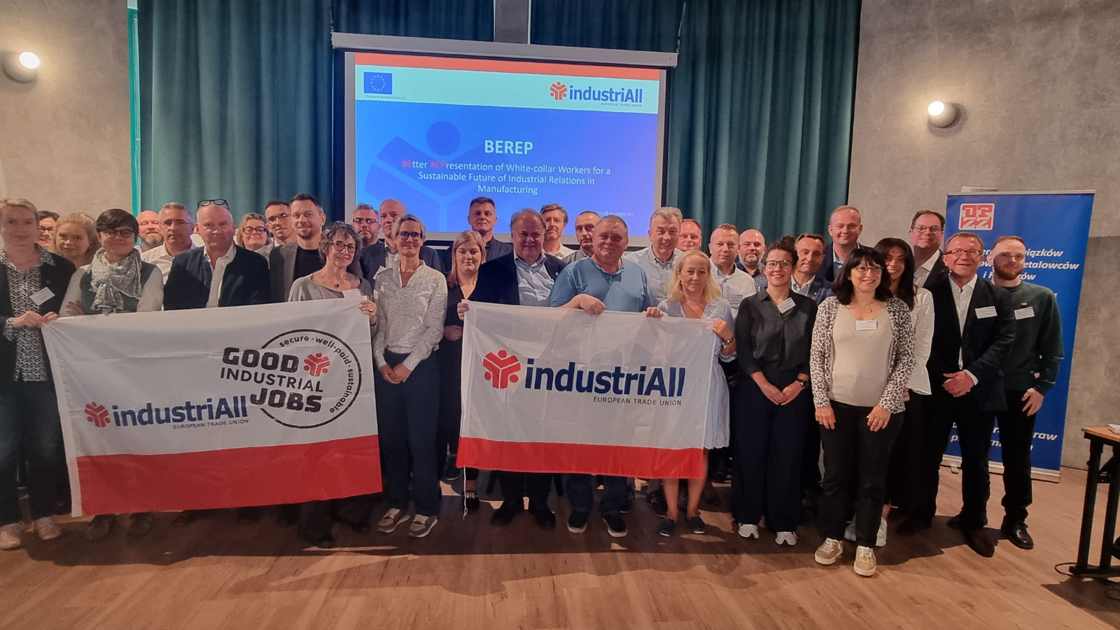The number of white-collar workers in the manufacturing sector is growing in number and share throughout Europe. Today, about 41% of the workforce in Europe’s manufacturing sector is made up of white-collar workers. In some countries, the share of white-collar workers has already outpaced that of blue-collar workers, who traditionally formed the majority of the workforce in this sector. Many trade unions in manufacturing industries find it difficult to recruit, mobilise and represent white-collar members.
Research shows that in some countries, there is already a bigger share of white-collar workers in industry in comparison to blue-collar workers. For example, in Germany 52.1% are white-collar workers, and in Sweden: 58.5%. The tendency is equally increasing in other countries, such as Finland, where numbers of white-collar workers rose from 45% in 2011 to 49.8% in 2022, and in Poland, during the same time, from 28.7% to 38.8%.
If trade unions want to retain their power and influence as the voice of workers in the manufacturing industry, they need to step up their efforts to organise these workers, many of whom are female.
Representatives of nine countries and the sister federations of industriAll Europe- Eurocadres and IndustriALL Global Union - attended the final conference of the EU-funded project ‘Better representation: BEREP’, held in Wroclaw on 11 and 12 September.
The project consisted of extensive research into working conditions and the expectations of white-collar workers across Europe, national online workshops and an online survey carried out in Finland, France and Germany. The results showed that around 50% of white-collar workers are generally open to unions, find them useful, and are willing to join, but have never been approached by a trade unionist.
White-collar workers often expect services that are closer to their needs, which differ to the needs of blue-collar workers. These needs include overtime regulation and travel regulation/compensation, the right to disconnect and career planning. Throughout the conference, participants shared experiences and good examples, but agreed that peer-to-peer contact, where white-collar workers engage with fellow white-collar workers, has proven the most effective. They also noted that a first contact, digitally, can break the ice and spark interest due to their strong digital skills and their wide access to online tools.
